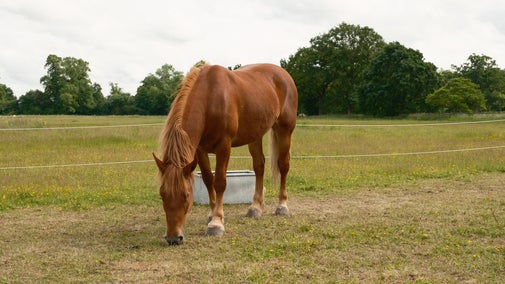Turning the page; A new chapter for Wimpole Hall’s Library
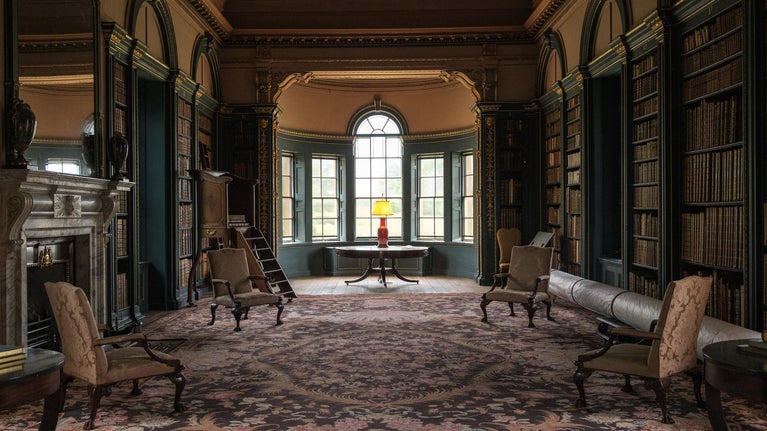
From Friday 27 June, visitors to the National Trust’s Wimpole Estate in Cambridgeshire can take a long-awaited step into the Library for the first time and experience the grandeur of the room as it was intended: immersive, atmospheric, and awe-inspiring, thanks to an innovative conservation project.
A Historic Room with a Storied Past
The library was built for Lord Edward Harley, the 2nd Earl of Oxford, by architect James Gibbs. For centuries, the remarkable historic carpet, a centrepiece of the room’s character, meant that access was limited to preserve its fragile fibres.
Unravelling the Mystery of a Masterpiece
Iain Stewart, Senior Collections & House Manager and Curator Apprentice at Wimpole Estate explains:
“The exact history of this impressive, hand-knotted, English carpet is still a topic of academic research. Research is currently taking place between Axminster Carpets Ltd., The National Trust and Oxford University to track down the story of the design, purchase and fitting of the carpet.
“Manufactured in linen and wool, it is assumed to be an Axminster carpet, dated to the 1760s, and probably designed by Thomas Whitty. This would make it one of the largest manufactured on a single loom without any joining seams. Confirming the maker and date would also mean the carpet is one of the few 18th century items that remain at Wimpole Hall.
“It is decorated with shells, palm fronds and garlands of English flowers, all on a chocolate coloured background.
“For centuries it has been a dominant feature of the room. In a Country Life article in 1927, Christopher Hussey wrote ‘the magnificent and immense carpet that covers the entire floor is, probably, the most important English carpet of its date in existence. On a chocolate brown ground, wreaths and floral designs are strewn in light colours’.”
A Conservation Breakthrough
Until now, the view from the doorway was the closest most visitors could get. But in early 2025, the estate's Collection and House Team, in collaboration with specialist textile conservators, embarked on a bold project to transform the visitor experience while safeguarding the historic integrity of the space.
Conservation in action
Preserving the Past, Embracing the Future
In a carefully orchestrated process, the Library’s original carpet was surveyed, surface-vacuumed, and rolled into long-term storage by the National Trust’s textile conservation studio. In its place now lies a strikingly accurate reproduction, not woven, but printed using high-resolution photographic technology to replicate every detail of the original design.
The new carpet, created by Rutters UK, who also produced the reproduction for Wimpole Hall’s Yellow Drawing Room, allows visitors to walk freely into the room, and experience the splendour of the Library, without putting the original textile at risk.
Bringing the Library to Life
"This project is a wonderful example of the balance we strive for at Wimpole," continues Iain Stewart, Senior Collections & House Manager and Curator Apprentice at Wimpole Estate.
"It’s about preserving the past, while opening up new opportunities for people to connect with it in a meaningful way. The Library has always been a place of learning, imagination and inspiration. Now our visitors can experience that space as it was meant to be, not just seen, but felt."
Opening Doors to History
Completed in just six months, the project marks a significant step in enhancing access to Wimpole’s interiors, enabling more people to explore and appreciate the craftsmanship, stories, and history woven into every room.
Wimpole’s Library is now open for everyone to see, usual admission applies, free for National Trust members.
You may also be interested in
Visiting Wimpole Hall
Step inside Wimpole Hall and discover how previous owners made their mark on this complex house.
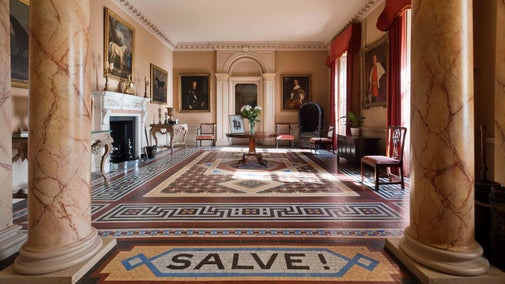
The history of Wimpole Estate
From Iron Age roundhouses to a modern estate, Wimpole has been lived on and farmed for over 2,000 years. Discover how its owners have each left their mark.

Our work at Wimpole Estate
Take a look at some of the important work that takes place at Wimpole Estate on a day-to-day basis, to look after this special place for everyone, for ever.

Volunteering at Wimpole Estate
Discover the opportunities available for volunteering at Wimpole Estate and what you could get out of it.
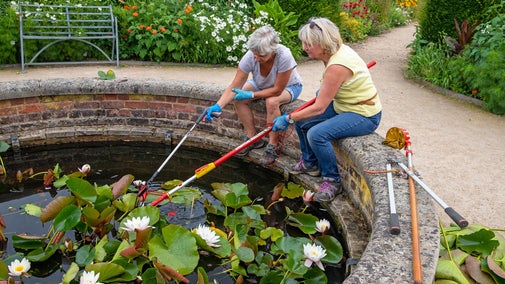
Stair Climber enables hundreds of visitors to access Wimpole Hall for the first time
The National Trust has enhanced accessibility at Wimpole Hall in Cambridgeshire by installing a Stair Climber, enabling wheelchair users and those with limited mobility to access the historic building. Following a successful trial in 2024, 788 visitors who might have otherwise missed out were able to experience the site. The Stair Climber offers a non-invasive solution that preserves the hall’s historic fabric while making it more inclusive. Similar installations have been introduced at other National Trust properties across the country, reinforcing the organization’s commitment to improving accessibility for all visitors.
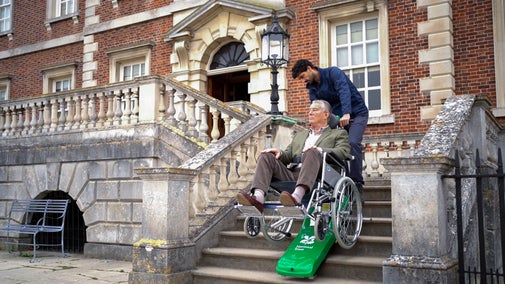
Visiting Wimpole Garden
Discover Wimpole’s gardens and visit the Parterre, walk through the Pleasure Grounds meandering your way to the Walled Garden, with herbaceous borders and fruit trees.

Explore the parkland at Wimpole
Explore the acres of parkland at Wimpole, abundant with wildlife, flora and fauna; stroll across the open space, or head across the Chinese bridge to visit the Gothic folly.

Explore Wimpole Home Farm
Built in 1794, Home Farm is the only in-hand farm of its kind in the National Trust. Unique to Wimpole Estate, it is a model for sustainable farming practices. A must see on your next visit, it is home to many rare-breed animals and the species of flora and fauna that make the estate an agricultural champion.
